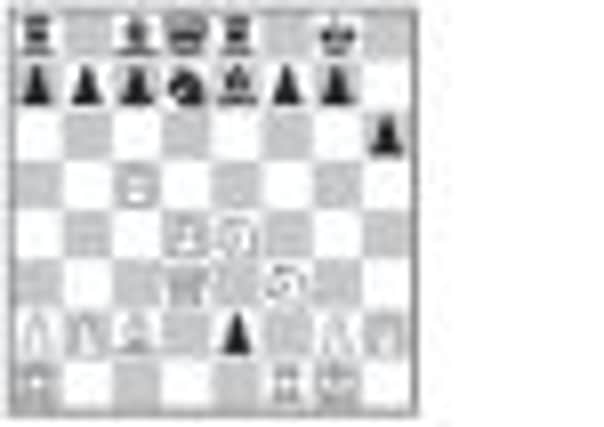Chess: How does White win?


ON Monday, a milestone anniversary was reached for one of the most famous living chess players, as Boris Vasilievich Spassky, the tenth World Chess Champion, who held the title from 1969 to 1972, celebrated his 75th birthday.
Spassky was born in Leningrad in 1937 and escaped the Nazi siege of the city in 1943. He proved a natural at chess, showing early promise in winning the 1955 world junior crown. He went on to be a World Chess Championship candidate seven times (1956-1985), and played in three World Championship matches: losing to Tigran Petrosian in 1966, then beating him in 1969 to become champion, before losing the title to Bobby Fischer in 1972.
Advertisement
Hide AdAdvertisement
Hide AdDespite his glittering career, Spassky, sadly, will always be best remembered as the man who had the misfortune to be champion as Fischer went on the rampage. That Cold War battle in Reykjavik came as a heavy psychological blow for Spassky – after losing to Fischer, he never again seemed to play with the same zest or commitment, though his huge talent still emerged in the occasional brilliant game.
From his anthology of brilliant and unforgettable games, it is always hard for me to pick my favourite – but his victory over David Bronstein in the Soviet Championship of 1960 holds a special place in everyone’s heart. It is also the most viewed chess game in history, as it was immortalised on the big screen with a cameo appearance in the James Bond film From Russia with Love.
When Fischer saw this game he was said to be blown away by it. In his very next interview he said that Spassky was one of the ten best players in history! One commentator even went as far as regarding 15 Nd6! to be one of the deepest sacrifices this side of The Evergreen Game.
B Spassky - D Bronstein
USSR Ch., 1960
King’s Gambit Accepted
1 e4 e5 2 f4 exf4 3 Nf3 d5 4 exd5 Bd6 5 Nc3 Ne7 6 d4 0–0 7 Bd3 Nd7 8 0–0 h6 9 Ne4 Nxd5 10 c4 Ne3 11 Bxe3 fxe3 12 c5 Be7 13 Bc2 Re8 14 Qd3 e2 15 Nd6! Nf8 16 Nxf7 exf1Q+ 17 Rxf1 Bf5 18 Qxf5 Qd7 19 Qf4 Bf6 20 N3e5 Qe7 21 Bb3 Bxe5 22 Nxe5+ Kh7 23 Qe4+ 1–0